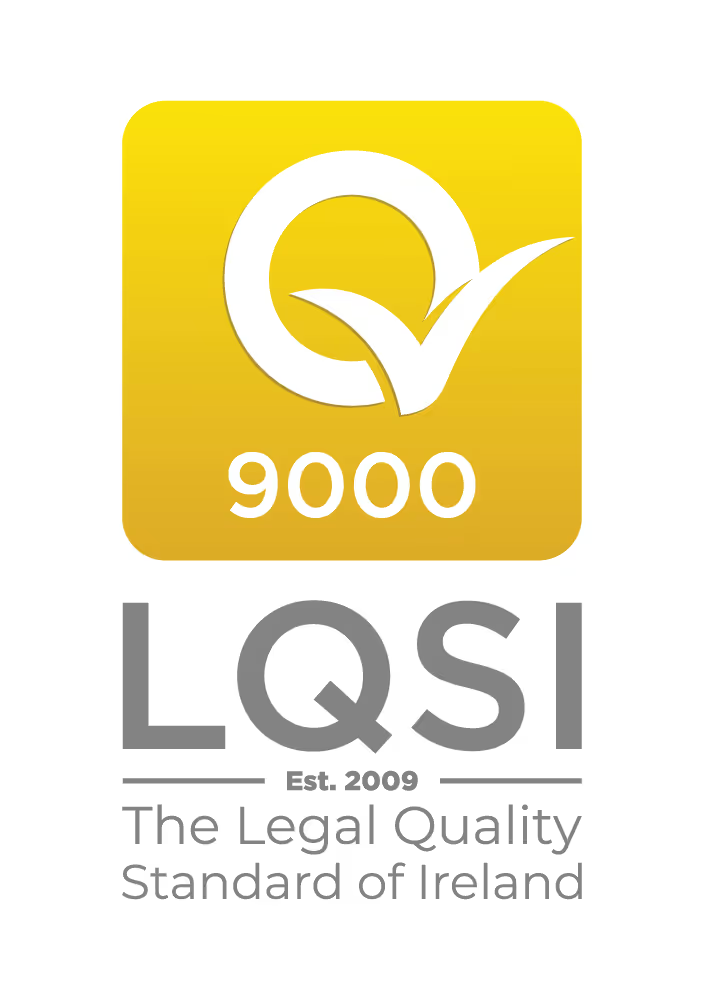New Regulations Introduce Changes to Probationary Periods, Exclusive Employment, Mandatory Training, Predictable Working Hours and Terms of Employment.
On the 16th of December 2022, the Government announced the introduction of the European Union (Transparent and Predictable Working Conditions) Regulations 2022 (the “Regulations”). The Regulations create significant changes in Irish employment law, which are relevant to every Irish employer.
Welcoming the Regulations, the Minister for Business, Employment and Retail, Damien English TD said “Bringing this Directive into Irish law adds to our already robust suite of employment protections and complements the new workers’ rights introduced over the last two years.”
It is important for all employers to consider the Regulations carefully. We have summarised some of the main provisions below.
Probationary Periods
The most notable change is the introduction of statutory rules on probationary periods which were previously primarily governed by an employee’s contract of employment.
With certain exceptions, to include public servants, the Regulations stipulate that where an employee has entered a contract of employment that provides for a probationary period, the probationary period shall not exceed 6 months in duration. However, the Regulations provide that on an exceptional basis the probationary period may be longer where:
- The probationary period does not exceed 12 months; and
- The grant of an extension would be in the interest of the employee.
Unfortunately, there is currently no guidance on what would constitute “in the interest of the employee” and employers will have to proceed cautiously when extending probationary periods. It is important to remember that, under certain circumstances, employers are still within their rights to end an employee’s contract during the probationary period. We would recommend that employers schedule reviews at 1, 3 and 5 months to highlight any performance issues that may arise. We would also advise that employers retain their right in their contracts of employment to extend the probationary period, in line with the Regulations.
The Regulations expressly provide that if on the 16th December 2022 an employee (other than a public servant) was subject to a probationary period which exceeds 6 months and the employee has completed at least 6 months of his/her probationary period, the probationary period shall expire on the earlier of:
- The date on which the probationary period was due to expire, or
- The 1st February 2023.
In advance of the 1st February 2023, employers should carry out an audit of any employees who have service in excess of 6 months and are still on probation. Employers should engage with those employees as a priority, as their probation will otherwise be deemed to expire on the 1st February 2023.
The Regulations also provide that where an employee has entered into a fixed-term contract which provides for a probationary period, the length of the probationary period must be proportionate to the expected duration of the fixed-term contract and the nature of the work. Where an employer proposes to renew a fixed-term contract for the same functions and tasks, the new term must not be subject to a new probationary period.
Exclusive Employment
Many employers include provisions in their contracts prohibiting employees from working for other employers. The Regulations provide that employers may not restrict an employee from taking up employment with another employer, outside of their normal working hours, unless the restriction (“incompatibility restriction”) is proportionate and based on objective grounds. If the employer is going to rely on an incompatibility restriction the details, to include the objective grounds, must be set out in the contract of employment or a statement setting out the restriction must be provided, to the employee. The objective grounds include;
- health and safety;
- protection of business confidentiality;
- avoidance of conflicts of interest;
- safeguarding productive and safe working conditions;
- compliance by the employer and the employee with any applicable statutory or regulatory obligations; and
- compliance by the employee with any professional standards.
For example, where an employee is employed on a full-time basis the employer may objectively justify a refusal to allow an employee to take up other employment, where to do so would see the employee working excessive hours, as this would be incompatible with health and safety and working time regulations.
Mandatory Training
Where an employer is required by law or a collective agreement to provide training to an employee to carry out the work for which he or she is employed, the Regulations provide that the training must;
- be provided to the employee free of cost;
- count as working time; and
- where possible, take place during working hours.
Predictability of Working Hours
Subject to certain exceptions, the Regulations provide that where an employee’s hours of work vary, the hours the employee is requested to work must now take place within the normal hours and days of work set out in the employee’s contract of employment. An employee may now, without any adverse consequences, refuse to work where the notice provided does not comply with the minimum 24 hour notice period or is outside their normal hours of work. The Regulations also provide that certain employees may request a form of employment with more predictable and secure working conditions and the employer must provide a reasoned reply.
Terms of Employment
Employers are under a duty to furnish their employees with a statement of the main terms and conditions of their employment within the first five days of the commencement of their employment. The Regulations provide that the following additional information must be included:
- The place of work or where there is no fixed place, a statement specifying that the employee is employed at various places or is free to determine his or her place of work or to work at various places;
- Either the title, grade, nature or category of work or a brief description of the work;
- The date of commencement of the contract of employment;
- Any terms and conditions relating to the hours of work (including overtime); and
- Where a probationary period applies its duration and conditions.
The two-month period to provide the remainder of the statutory required terms has been reduced to one month and the following additional information must be included:
- the training entitlement, if any, provided by the employer;
- in the case of agency workers, the identity of the end user, as soon as it is known;
- where the work pattern is unpredictable, confirmation of that fact, guaranteed paid hours and the remuneration for any additional hours, the normal hours and days of work and the minimum notice period to be given in advance of the employee being expected to work.
The information set out above must be provided to existing employees if they request it.
The written statement must be signed and dated on behalf of the employer and, where not in paper format, provided to an employee in a manner that is accessible and can be stored and printed. The onus is on the employer to retain the proof of either transmission or receipt in electronic form.
Next Steps
We would advise employers to carry out an audit of all of their employees with over 6 months service in advance of the 1st February 2023. Employers should also review their contracts and policies and procedures to ensure they are compliant with the new Regulations. For more information or assistance with the implementation of the Regulations please contact Caoimhe Heery, Partner at Email: caoimheheery@fod.ie or Claire McDermott, Partner at Email: clairemcdermott@fod.ie or any member of the Flynn O’Driscoll Employment Team.
This article is current as at 27th of January 2023 and is provided for information only and does not constitute legal advice.








